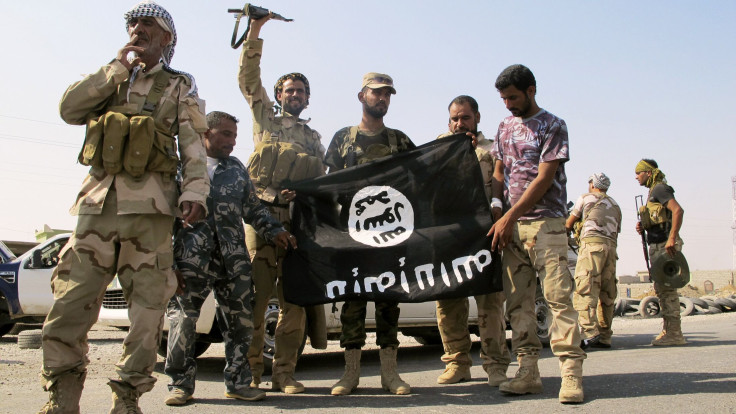US Will Bomb ISIS In Syria: Where The Military Will Strike [MAP]

President Barack Obama said Wednesday night that the U.S. would fight the Islamic State from the air. The militant group, also known as ISIS and ISIL, has taken over large parts of Syria and Iraq and "in acts of barbarism," is responsible for the beheadings of U.S. journalists James Foley and Stephen Sotloff.
"If left unchecked, these terrorists could pose a growing threat beyond that region -- including to the United States," Obama said. "In a region that has known so much bloodshed, these terrorists are unique in their brutality.
“America will lead a broad coalition to roll back this terrorist threat,” Obama said. “This counter-terrorism campaign will be waged through a steady, relentless effort to take out ISIL wherever they exist using our air power and our support for partner forces on the ground.”
Obama said the mission in Syria would be similar to past efforts to fight terrorism in Yemen and Somalia, which could indicate that the U.S. will use drones to hit ISIS strongholds. Just last week, the U.S. conducted a military mission in Somalia that killed dozens of Al Shabaab members, including Ahmed Abdi Godane, the group's leader.
For the past two weeks, the U.S. has conducted surveillance flights over Syria to gather intelligence about where ISIS is located and how it moves within the country. The U.S. will use this information to target the Sunni militant group.
ISIS is currently operating throughout the country, but the majority of its forces are based in Al-Raqqa in the eastern part of the country. Within the past month, the group has made gains in the north near Aleppo, the country’s economic capital, known for its textile industry. In the battle for Aleppo, ISIS fighters told the International Business Times, the group's goal is to move closer to taking control of the Bab al-Salama border crossing with Turkey, which moderate rebels have held for more than two years.
A training camp in Al-Bab, north of Aleppo, recruits children ages 14 and 15, who receive the same training as adults, and offers financial rewards, according to a recent U.N. report. The training includes both weapons and religious education.
ISIS took over Al-Bab in the fall of 2013, pushing out civilians who supported the moderate Free Syrian Army and Jabhat al-Nusra, an Islamist fighting group linked to al Qaeda but is less brutal than ISIS. Prior to taking the city, opposition rebels -- though they fought with different factions -- had established a kind of governing structure. The opposition defeated the Bashar al-Assad regime's troops in an intense battle in July 2012, and soon after began sending soldiers to secure banks, hospitals and schools.
The U.S. airstrikes will also most likely target land even farther east than Al-Raqqa, near the border with Iraq, which ISIS seized in the beginning of June when it took control of Mosul, Iraq’s second largest city. At that time, ISIS bulldozed the border between the two countries to allow for the free flow of fighters, money, supplies and weapons.
Check out ISW's most recent ISIS Sanctuary Map here: http://t.co/ig7xfQ4qMc pic.twitter.com/CEXWfgZgwp
- ISW (@TheStudyofWar) September 10, 2014"It will take time to eradicate a cancer like ISIL," Obama said. "Our own safety--our own security--depends upon our willingness to do what it takes to defend this nation, and uphold the values that we stand for--timeless ideals that will endure long after those who offer only hate and destruction have been vanquished from this Earth."
© Copyright IBTimes 2025. All rights reserved.





















